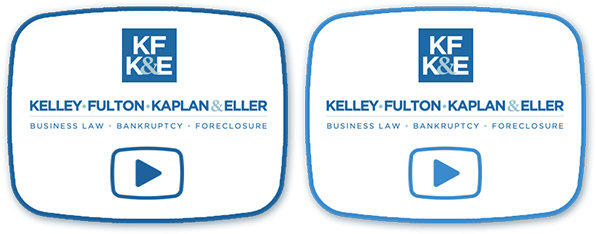Port St. Lucie Chapter 7 Bankruptcy Attorney
Chapter 7 bankruptcy is a common way people discharge their debts in Port St. Lucie, and throughout the entire country. If you successfully file a Chapter 7 bankruptcy, you can have most or all of your debt discharged. Not all debt is dischargeable during a Chapter 7 bankruptcy, and you must meet certain requirements, such as passing the means test. While some borrowers do lose property during the bankruptcy process, others get through it without forfeiting any assets at all. Below, our Port St. Lucie Chapter 7 bankruptcy attorney outlines the process, and how our legal team can help.
How Chapter 7 Bankruptcy Works
Regardless of the type of bankruptcy you file, the process officially starts when you file the petition with the court. Once you have filed your petition, a bankruptcy judge will issue an automatic stay. The automatic stay prohibits creditors and debt collectors from contacting you to try and collect on the debt. These entities are also not allowed to levy your bank account, garnish your wages, or take other legal action in an attempt to collect the debt. The automatic stay remains in effect during the entire bankruptcy process.
You will also have to submit a standardized form when you file bankruptcy, showing that you pass the means test. Essentially, this test shows that your income falls below the average income in the state. A bankruptcy trustee will also be assigned to your case after you file your petition. The trustee oversees your case, attends the meeting of the creditors, handles disputes and adversary claims, and sells non-exempt property.
Your attendance at the meeting of the creditors is also mandatory but for many, this is the only hearing they attend during their case. You also must complete a credit counseling course, which can help better prepare you for handling debt in the future.
What Debt Cannot Be Discharged During a Chapter 7 Bankruptcy?
Unfortunately, there are certain types of debt that cannot be discharged during a Chapter 7 bankruptcy. These are as follows:
- Federal student loans, unless paying it would create an undue hardship for the borrower
- Support payments, such as alimony and child support
- Loans and credit card purchases valued at $1,150 or more, if it was incurred 60 days before the bankruptcy petition was filed
- Fraudulent debt
- Criminal fines and penalties
- Tax debt
- Any debt caused by a DUI that resulted in personal injury or fatality
- Debts listed in a previous bankruptcy
Call Our Chapter 7 Bankruptcy Attorney in Port St. Lucie for Sound Legal Advice
Chapter 7 bankruptcy is one of the most common types of bankruptcies filed in Florida. Still, the process can become complex and one small mistake could hurt your case. At Kelley Kaplan & Eller, our Port St. Lucie Chapter 7 bankruptcy attorney can help you navigate the process and give you the best chance of getting your debt discharged. Call us now at 561-264-6850 to schedule a consultation with one of our knowledgeable attorneys and to learn more.




